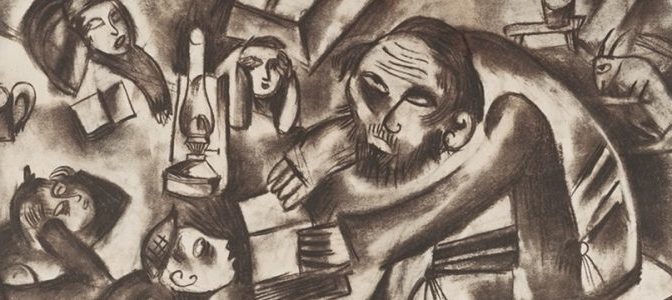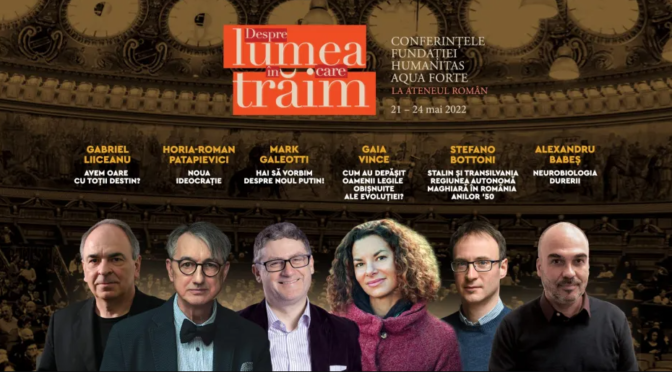
The 8th session of IMS / CEFRES Epistemological seminar will be hosted by:
Zuzana Krulichová (PhD candidate at FSV UK)
Topic: Human Rights
Organisers: Jérôme Heurtaux (CEFRES), Claire Madl (CEFRES), Tomáš Weiss (FSV UK) and Mitchell Young (IMS FSV UK)
Where: on line
To register, please contact: claire(@)cefres.cz
When: Wednesday, May 19th, 4:30 pm- 6:00 pm
Language: English
Reading:
- Amartya Sen : “Human Rights and Capabilities”. Journal of Human Development, Vol. 6, No 2, July 2005.

Second session of 2018 common epistemological seminar of CEFRES and IMS FSV UK led by
Martin Pjecha (CEFRES – CEU)
Human Agency and Apocalyptic Violence
Where: CEFRES library – Na Florenci 3, 110 00 Prague 1
When: Thursday 08.03.2018 from 3:30 pm to 5 pm
Language: English
Text:
- Matthias Riedl, “Terrorism as ‘Apocalyptic Violence’ On the Meaning, and Validity of a New Analytical Category”, Social Imaginaries 3.2 (2017), pp. 77-107.
Read more about the seminar!

Maria Kokkinou (CEFRES / Charles University) and
Charlotte Grégoreski (IIAC-EHESS / University of Chile)
will be taking part in the seminar called Current Issues. Reflection on Crises organised by CEFRES.
Date: Wednesday, April 28th 2021, 12:30 – 13:50
Where: Online on Zoom.
Organisators: Maria Kokkinou (post-doc at CEFRES / Charles University), Jérôme Heurtaux (CEFRES)
Language: French
Link to join the seminar: https://us02web.zoom.us/j/84097191940
For more information about the programme and the seminar, see the website: http://cefres.cz/fr/seminaires/penser-les-crises.
Credit image: Banksy

A lecture by Carmen Reichert (Augsburg University) in the frame of the seminar on Modern Jewish History of the Institute of Contemporary History (AV ČR) and CEFRES in partnership with the Masaryk Institute (AV ČR).
Where: CEFRES library, Na Florenci 3, 110 00 Prague 1
When: from 5:30 pm to 7:00 pm
Language: English
Abstract
Narrations on the Choice of Yiddish in Autobiographical Writings after Peretz
It should come as no surprise that literary autobiographies essentially tell us how writers became writers. From Rousseau’s Confessions to Goethe’s Bildungsroman – lire and écrire – an author’s reading lists and their first attempts at writing are crucial topoi to the genre. But the Yiddish writers of the early twentieth century did not grow up with the knowledge that their mother tongue was a literary language. Hebrew and not Yiddish was the language of learning in private schools for Jewish boys. This is why Yiddish writing in the early twentieth-century developed somewhere between the traditional, Hebrew-dominated education system of Cheders and Yeshivas and non-Jewish libraries. According to tradition, written Yiddish texts were primarily intended for women and uneducated men. Therefore, male and female writers developed different writing strategies when writing Yiddish: Whereas women could trace their writings back to early Yiddish autobiographies such as Glikl of Hameln’s “Zikhroynes” (Memories), men preferred to follow Western European traditions. Yiddish autobiographies often link the personal lives of their writers to the history of Yiddish. For example, when Sholem Aleichem compares his life to the market (“yarid”), he simultaneously commits his voice to the “market language” of Yiddish. I. L. Peretz, the “father” of the Yiddish literature, was particularly influential in this context. Not only did he encourage writers to switch to their native language, his autobiography “Mayne zikhroynes” (My Memoirs), which draws inspiration from Romanticism, inspired a great number of autobiographical texts from younger writers.
Carmen Reichert is a postdoctoral researcher at the Augsburg University currently working on a project about literature and language debates in context of the Czernowitz language conference. For more, please see here.

How to study Romanian conservative intellectuals in transnational perspective?
5th session of CEFRES Seminar
When: Wednesday 6 April 2022, 4:30 pm
Where: CEFRES and online (to register please contact claire(@)cefres.cz)
Language: English
Host: Anemona Constantin (CEFRES/Charles University)
Abstract:
“Populist,” “illiberal,” “nationalist,” or “conservative”: these are some common ways to refer nowadays to political actors, social movements, or intellectuals who criticize liberalism. These overused, worn-out, and often abused labels have been reinvented despite some obvious theoretical flaws and methodological biases. Perhaps, because these terms are fulfilling a vital social and political function – naming and shaming what appears to be at the climax of the ideological undesirability – they continue to be widely used in the media and by social scientists. A few questions emerge naturally: how to engage with a research field undermined by so many negative preconceptions? How to study an object labeled in such a derogatory way? Which research methods would allow us to break with the common beliefs and approach the conservative mobilizations more reflexively?
To answer these questions, the presentation examines a specific case: the Romanian conservative intellectuals and their contribution to the political debates that have challenged since 2007 the “liberal consensus” established in Central and Eastern Europe (CEE) after the demise of state- socialism. By “liberal consensus,” I understand discourses that have accepted and promoted human rights (including minority rights and tolerance towards cultural, religious, and gender diversity), the market economy, the rule of law, and the European integration. By “conservative” intellectuals, I understand public figures who define themselves as such.
Continue reading How to study Romanian conservative intellectuals? →
Mátyás Erdélyi (CEFRES / CEU) will host CEFRES/IMS FSV Seminar on Thursday November 10th (15:30) at CEFRES Library.
How to Make Sense of Class, Status, and Power: The Example of the Bürgertum
Texts to be read are:
- Jürgen Kocka, « The middle classes in Europe », The Journal of Modern History, vol. 67, n° 4, 1995, p. 783-806.
- Max Weber, « The distribution of power within the community : Classes, Stände, Parties », Journal of Classical Sociology, vol. 10, n° 2, 2010, p. 137-152.
Texts:





